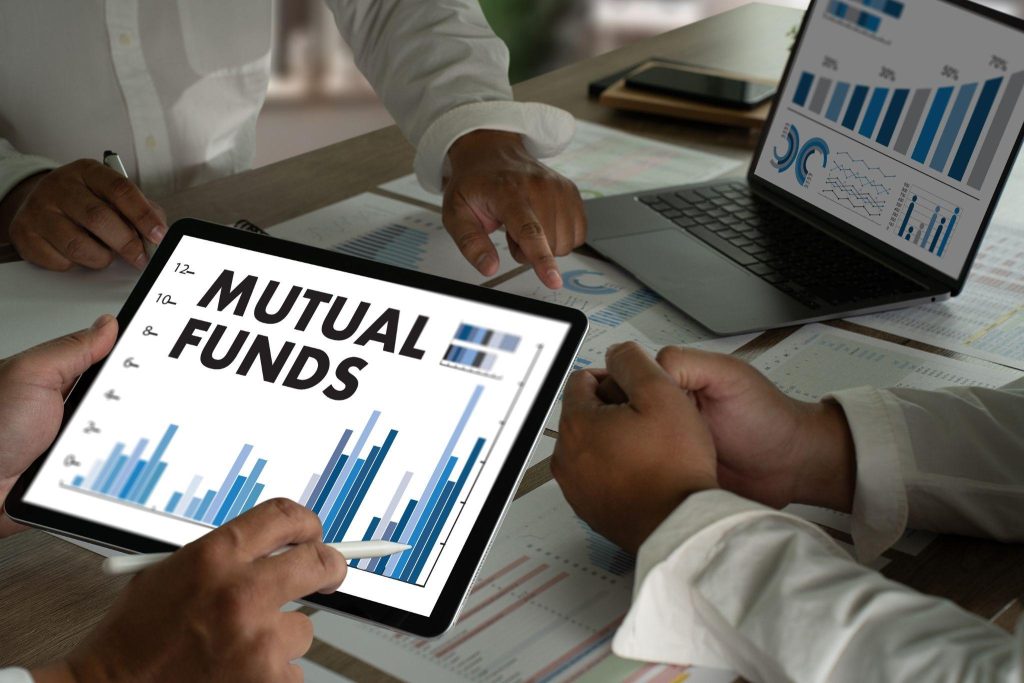Holly Berry is a writer for Akomplice, a Marketing Company and Marketing Technology Agency located in Salt Lake City, Utah.

When choosing an investment vehicle, the debate between investing in ETFs and mutual funds is a common one. Both options have their advantages, depending on your financial goals and risk tolerance. This article will break down the key differences between ETFs and mutual funds, helping investors make informed decisions when evaluating which is the better fit for their portfolio.
Understanding the Basics
Before diving into the pros and cons, it’s important to understand what ETFs and mutual funds are. Both types of investments pool money from many investors to purchase a diverse portfolio of assets. However, their management style, fees, and trading methods differ.
Mutual funds are actively managed by fund managers, who research and select investments to outperform a benchmark index. These funds are traded once a day, after the market closes, based on the fund’s net asset value (NAV). Due to active management, mutual funds tend to have higher fees. Additionally, they often come with minimum investment requirements, which could be a barrier for some investors.
ETFs, on the other hand, are passively managed and designed to track a specific index or sector. They can be traded throughout the day, like individual stocks. This means that their prices fluctuate during the trading session. ETFs generally have lower fees than mutual funds since there is less active management involved. For those interested in trading software, the flexibility that ETFs offer may be appealing.
When considering ETFs, it’s important to weigh the flexibility and low costs against the potential benefits of active management that mutual funds provide.
Fees and Expense Ratios
One of the biggest differences between ETFs and mutual funds lies in their cost structures. Investors need to consider fees, which can impact long-term returns.
Mutual funds typically charge higher expense ratios, primarily due to the costs associated with active management. The fund manager’s expertise and research aim to beat the market, but this comes at a cost. Additionally, some mutual funds may charge a front-end or back-end load, which is a fee paid when buying or selling shares.
On the other hand, ETFs are known for their low costs. Because they generally track an index, the level of research and active decision-making is minimal, resulting in lower expense ratios. Many ETFs have no load fees, and their transaction costs are usually lower than those of mutual funds. For those using stock market software, the lower transaction costs of ETFs can be an advantage, especially for frequent traders.
Investors looking for an affordable way to diversify their portfolios might find investing in exchange traded funds a more cost-effective option.
Trading Flexibility and Liquidity
One major advantage of ETFs over mutual funds is the ability to trade them throughout the day. This flexibility allows investors to react to market changes in real time, buying or selling ETFs whenever the market is open.
Mutual funds, in contrast, do not offer this flexibility. They are priced and traded only once a day after the market closes. This can make it difficult for investors to take advantage of intraday price movements. Additionally, mutual fund purchases and sales may take longer to process than ETF trades, affecting liquidity.
For investors looking for immediate access and control over their trades, ETFs might be the more attractive option.
Tax Efficiency
Another point of comparison between ETFs and mutual funds is their tax efficiency. “ETFs are generally more tax-efficient than mutual funds due to their unique structure, which allows them to avoid triggering taxable events as frequently as mutual funds do,” says SmartAsset.
Mutual funds often generate capital gains distributions when the fund manager buys or sells assets within the portfolio. These capital gains are then passed on to the investors, who are responsible for paying taxes on them, even if they haven’t sold their shares in the mutual fund.
Those considering long-term portfolio growth with minimal tax impact may benefit from trading ETFs using stock trading software.
Active vs. Passive Management
A key difference between ETFs and mutual funds is the management style. Mutual funds are typically actively managed, meaning a fund manager selects securities intending to outperform a benchmark index. This active management can potentially lead to higher returns, but it also comes with the risk of underperformance.
ETFs are generally passively managed, meaning they aim to replicate the performance of a particular index, such as the S&P 500. While this approach may not deliver market-beating returns, it tends to result in lower costs and a lower risk of underperformance.
Investors who believe in the value of active management and are willing to pay higher fees for potentially higher returns may prefer mutual funds. On the other hand, those who prefer a hands-off approach and are satisfied with market-matching returns may lean toward ETFs.
For those who value transparency and predictability in their investments, ETFs offer a straightforward approach without the need to rely on fund managers’ decisions.
The decision between ETFs and mutual funds depends on your investment strategy, risk tolerance, and financial goals. If you prefer lower costs, intraday trading flexibility, and tax efficiency, ETFs may be the better choice. Meanwhile, those who value active management and are willing to pay higher fees for the potential of outperformance may find mutual funds more appealing.
For investors using the best trading programs, ETFs offer flexibility and lower costs, making them an attractive option. Ultimately, the choice between these two investment vehicles comes down to your personal preferences and financial objectives.
When considering long-term portfolio growth and efficient market access, investing in ETFs through Decisive Investor presents a competitive option for many investors.

